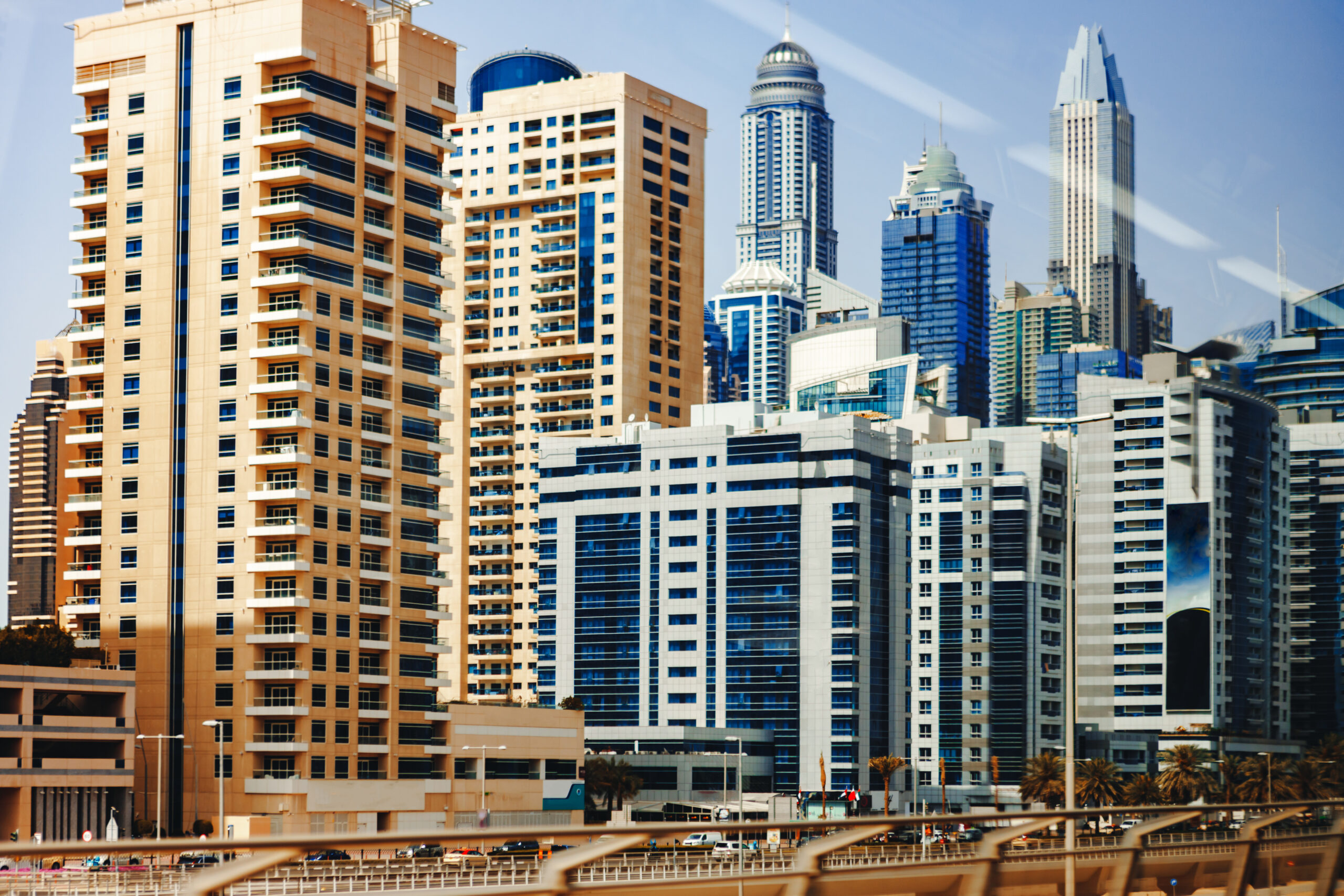
Rent in Abu Dhabi: A Comprehensive Guide for Expats
Introduction
Abu Dhabi, the capital of the United Arab Emirates, is a popular spot for people moving from all over the world. With its impressive skyscrapers, strong economy, and rich cultural scene, it’s a place that offers a mix of old and new. It’s no surprise that many professionals and families are choosing to rent in Abu Dhabi.
If you’re new to Abu Dhabi, understanding the rental market is really important. Finding the right place to live can make a big difference in how much you enjoy your time in the city. Knowing what to expect can help you avoid common problems and make settling in much easier when you rent in Abu Dhabi.
This guide is here to help expats with everything they need to know about renting in Abu Dhabi. We’ll talk about how the rental market works, the best neighborhoods to live in, what you need to know about rental agreements, and practical tips for moving in. Whether you’re new to the city or thinking about moving to a different area, this guide will give you the information you need to find the right home and rent in Abu Dhabi.
Understanding the Rental Market in Abu Dhabi
Overview of the Rental Market Dynamics
The rental market in Abu Dhabi is always buzzing, with lots of options for different tastes and budgets. More and more people are moving here, which keeps the demand high. Things like location, type of property, and available amenities can really affect rental prices. It’s good to keep an eye on market trends because prices can change based on what’s happening in the economy and new developments.
Types of Rental Properties Available
In Abu Dhabi, there are several types of rental properties you can choose from:
Apartments: Great for singles, couples, and small families. You can find everything from studios to larger multi-bedroom apartments. Many buildings offer extras like swimming pools, gyms, and parking.
Villas: Ideal for bigger families or anyone who wants more space. Villas usually have several bedrooms, private gardens, and sometimes even private pools and garages. These are often in quieter, more residential areas.
Studios: Perfect for individuals or couples who don’t need a lot of space. Studios are generally cheaper and located in central areas, making them convenient for people who work in the city.
Average Rental Prices in Different Neighborhoods
Rental prices in Abu Dhabi can vary quite a bit depending on where you want to live. Here’s a rough idea of what to expect:
Corniche Area: This area is known for its beautiful views and close proximity to the beach. Renting a two-bedroom apartment here can cost between AED 80,000 and AED 150,000 per year.
Al Reem Island: A popular spot for modern living. A two-bedroom apartment usually costs between AED 90,000 and AED 140,000 per year.
Khalifa City: If you’re looking for a suburban feel with more space, this is a good option. A three-bedroom villa might cost between AED 120,000 and AED 170,000 per year.
Saadiyat Island: Known for its luxury living. A two-bedroom apartment here can range from AED 140,000 to AED 200,000 per year.
Al Raha Beach: Offers waterfront living. Renting a two-bedroom apartment typically costs between AED 100,000 and AED 160,000 per year.
Knowing these basics about the rental market in Abu Dhabi can help you make better choices and find a place that suits your needs and budget.
Best Neighborhoods for Expats
Corniche Area
The Corniche Area is a top choice for expats because of its beautiful beach views and close access to parks and fun activities. Living here means you can enjoy walks along the beach, visit nearby cafes and restaurants, and relax in the parks. It’s a lively area that offers a good mix of work and play.
Al Reem Island
Al Reem Island is known for its modern apartments and waterfront living. This area is great for those who like a sleek, urban lifestyle. The island has many high-rise buildings with amenities like gyms, pools, and shopping centers. It’s also close to the city center, making it easy to get around.
Khalifa City
Khalifa City is perfect for families looking for a suburban feel. It’s quieter than the city center and has more space, which is great for kids and family activities. The area has a mix of villas and larger apartments, along with schools, parks, and supermarkets, making it very family-friendly.
Saadiyat Island
Saadiyat Island is known for its luxury living and cultural attractions. If you’re looking for high-end apartments or villas, this is the place to be. The island has several museums, art galleries, and beautiful beaches. It’s perfect for those who enjoy a touch of class and want to be near cultural spots.
Al Raha Beach
Al Raha Beach offers beautiful waterfront properties and is close to Yas Island. Living here means you’re near some of Abu Dhabi’s best entertainment options, including theme parks, shopping malls, and golf courses. The area has a mix of apartments and villas, making it great for both singles and families.
Each of these neighborhoods offers something special, so you can choose the one that best fits your lifestyle and needs.
Steps to Finding a Rental Property
Online Property Portals
One of the easiest ways to start looking for a rental property in Abu Dhabi is by using online property portals. These websites and apps list many rental properties with detailed descriptions, photos, and prices. Popular sites include:
- Bayut
- Property Finder
- Dubizzle
These platforms let you filter your search by location, price, property type, and other preferences, making it simple to find options that suit your needs.
Real Estate Agents
Working with a real estate agent can be very helpful, especially if you are new to Abu Dhabi. Agents know the local market well and can provide personalized help. They can help you navigate the leasing procedure, schedule viewings, and locate properties that fit your specifications. You will save time and effort by working with a real estate agent, and they often have ads that you can’t find online.
Word of Mouth
Networking within the expat community can also be a valuable resource when searching for a rental property. Many expats share their experiences and recommendations through social media groups, forums, and community events. Asking friends, colleagues, or fellow expats for advice can lead you to good deals and reliable landlords. Sometimes, the best properties are found through personal connections and recommendations.
By using these methods, you can make your search easier and find a rental property in Abu Dhabi that fits your needs and budget.
Rental Costs and Budgeting
Breakdown of Rental Costs
When renting a place in Abu Dhabi, it’s important to know all the costs involved. Here’s a basic breakdown:
Monthly Rent: This is your main cost and will depend on the location, type, and size of the property. Check if the rent is paid monthly, quarterly, or yearly.
Utilities: These include electricity, water, and cooling charges. Some places include these in the rent, but often they are separate. Expect to pay around AED 500-1,500 per month, depending on usage and property size.
Maintenance Fees: Some buildings charge extra fees for maintaining common areas like lobbies, gyms, and pools. This can add another AED 100-500 per month.
Additional Costs
Besides the basic rental costs, there are a few other expenses to consider:
Security Deposit: Usually equal to one month’s rent, this is refundable at the end of your lease if the property is in good condition.
Agent Fees: If you use a real estate agent, you’ll typically pay a fee, usually around 5% of the annual rent.
Municipality Fees: This is a housing fee charged by the Abu Dhabi Municipality, often included in your utility bills. It’s typically 3% of your annual rent.
Tips for Budgeting and Managing Expenses
To manage your rental expenses effectively, consider these tips:
Set a Budget: Before you start your search, figure out how much you can comfortably afford to spend on rent and other costs. A good rule is to spend no more than 30% of your monthly income on housing.
Track Your Expenses: Keep a record of all your monthly expenses, including rent, utilities, and other fees. This will help you stay within your budget and see where you might cut costs.
Look for Inclusive Deals: Some rental properties include utilities and maintenance fees in the rent. While the rent might be higher, it can simplify your budgeting and avoid unexpected costs.
Negotiate: Don’t be afraid to negotiate the rent and other terms with your landlord or agent. You might get a better deal, especially if you’re willing to sign a longer lease.
Plan for Unexpected Costs: Always have a little extra saved up for unexpected expenses, like repairs or sudden increases in utility bills.
By understanding these costs and managing your budget wisely, you can enjoy your new home in Abu Dhabi without financial stress.
Legal Considerations and Tenancy Contracts
Understanding Tenancy Laws in Abu Dhabi
When renting a place in Abu Dhabi, it’s important to know the local tenancy laws. These rules are set to protect both tenants and landlords and ensure a fair rental process. Knowing your rights and responsibilities can help you avoid any legal problems and make your rental experience smoother.
Key Elements of a Tenancy Contract
A tenancy contract is a legal agreement between you and your landlord. Here are the key parts you should pay attention to:
Duration: This tells you how long the rental agreement lasts, usually one year. Make sure the duration matches your needs.
Renewal Terms: Check how the contract can be renewed and if there are any conditions for renewal.
Notice Period: This is the amount of time you or the landlord must give before ending the contract. It’s usually 60 to 90 days.
Maintenance Responsibilities: The contract should clearly state who is responsible for maintenance and repairs. Usually, the landlord handles major repairs, while minor ones might be your responsibility.
Importance of Registering the Tenancy Contract (Tawtheeq)
In Abu Dhabi, it’s mandatory to register your tenancy contract with the municipality, a process called Tawtheeq. This registration provides legal recognition of the contract and protects both parties in case of disputes. Here’s why Tawtheeq is important:
Legal Protection: Registering the contract ensures that both you and the landlord are legally protected.
Utility Connections: You often need a registered contract to set up utilities like water and electricity.
Dispute Resolution: If any issues come up, having a registered contract makes it easier to resolve disputes through the legal system.
Understanding these legal points and making sure your tenancy contract is in order will help you have a trouble-free rental experience in Abu Dhabi.
Tips for Negotiating Rent
How to Negotiate Rent with Landlords or Agents
Negotiating rent can feel challenging, but it’s worth a try to get the best deal. Here are some tips:
Do Your Homework: Before you start, find out the average rent for similar properties in the area. This gives you a solid starting point for your negotiation.
Be Polite and Clear: Approach the landlord or agent politely. Explain your case clearly and support it with your research.
Highlight Your Positives: If you have a good rental history or a stable job, mention it. Landlords like reliable tenants.
Ask for Extras: If the landlord won’t budge on rent, try asking for extras like free parking, maintenance, or a longer lease at the same rate.
Timing Your Rental Search to Get Better Deals
Timing can make a big difference when looking for a rental property:
Off-Peak Seasons: Rent prices can be lower during off-peak seasons, such as summer months when fewer people are moving. Start your search during these times for better deals.
End of the Month: Landlords and agents are often more willing to negotiate at the end of the month when they are eager to fill vacancies.
Importance of Rental Market Research
Understanding the rental market can give you a big advantage:
Current Trends: Keep an eye on current market trends, like average rental prices and how many places are available. This info can help you see if it’s a renter’s or landlord’s market.
Local Knowledge: Knowing the local area and its amenities can help you in negotiations. Highlighting features like being close to schools, public transport, and shopping centers can add value to your offer.
Using these tips can help you get a better deal and find a place that fits your budget and needs.
Essential Documents for Renting
List of Required Documents
When you’re ready to rent a place in Abu Dhabi, you’ll need to have a few important documents prepared. These include:
Passport: A copy of your passport to verify your identity.
Visa: Your residency visa to show that you are legally allowed to live in the UAE.
Emirates ID: Your official identification card in the UAE.
Proof of Income: Documents like your employment contract, salary certificate, or recent bank statements to show you can afford the rent.
Tips for Preparing and Organizing Documents
To make the rental process smoother, follow these tips for preparing and organizing your documents:
Keep Copies Ready: Make several copies of each document. It’s easier to have everything ready in advance rather than scrambling at the last minute.
Digital and Physical Copies: Have both digital copies (scanned versions) and physical copies. Some landlords or agents might accept digital copies, but it’s good to have physical copies just in case.
Organize in a Folder: Use a folder or binder to keep all your documents organized and easily accessible. This will make it quicker to find what you need during meetings or viewings.
Label Clearly: Label each document clearly so you can quickly identify and retrieve them when needed.
Stay Updated: Make sure all your documents are up-to-date. For instance, check that your passport and visa are not expired.
Having these documents ready and organized will help you move through the rental process smoothly and without stress.
Moving In: Practical Considerations
Arranging Utilities (Electricity, Water, Internet)
When you move into your new place in Abu Dhabi, one of the first things you’ll need to do is set up your utilities. Here’s how to get started:
Electricity and Water: These services are usually provided by Abu Dhabi Distribution Company (ADDC). You’ll need to visit their office or use their website to set up your account. Make sure you have your Emirates ID, tenancy contract, and a copy of your passport.
Internet: The main providers are Etisalat and du. You can visit their offices or websites to choose a plan that suits your needs. You’ll need your Emirates ID and tenancy contract to set up your account.
Setting Up Home Services (Cleaning, Maintenance)
Getting your home services in order will make your living experience much more comfortable. Here’s what to do:
Cleaning Services: You can hire a cleaning service for regular or occasional cleaning. There are many agencies in Abu Dhabi that offer reliable services. You can book online or ask for recommendations from friends or neighbors.
Maintenance: Some properties have maintenance included in the rent. If not, it’s good to find a reliable handyman or maintenance service for any repairs or upkeep needed. Recommendations from friends or neighbors can be very helpful here.
Registering with Local Authorities
Registering with local authorities is an important step after moving in:
Tawtheeq: Make sure your tenancy contract is registered with Tawtheeq. This is essential for legal recognition and to connect your utilities.
Local Authorities: Depending on your area, you might need to register with local municipalities for certain services or permissions. Check with your landlord or real estate agent for specific requirements.
Taking care of these practical considerations will help you settle into your new home in Abu Dhabi smoothly and ensure that everything is set up properly.
Living in Abu Dhabi: Expat Tips
Overview of Lifestyle and Amenities
Living in Abu Dhabi offers a high quality of life with plenty of amenities. The city is known for its modern buildings, great shopping malls, diverse dining options, and vibrant cultural scene. You can enjoy everything from luxury shopping and fine dining to outdoor activities like beach outings and desert adventures. The city is safe, clean, and well-organized, making it a great place for families and individuals alike.
Healthcare and Education Options
Healthcare: Abu Dhabi has excellent healthcare services with many hospitals and clinics offering top-notch care. Many of these facilities are internationally accredited, and you can find specialists in almost every field. It’s important to have health insurance, as medical care can be costly without it.
Education: There are many great schools in Abu Dhabi, offering various curricula like British, American, IB, and Indian. There are also several universities and colleges. Researching schools ahead of time and securing a spot can be competitive, so it’s best to start early.
Cultural Considerations and Etiquette
Living in Abu Dhabi means adapting to some cultural norms and etiquette:
Dress Code: While Abu Dhabi is quite liberal, it’s respectful to dress modestly in public places. This means covering shoulders and knees.
Behavior: Public displays of affection should be kept minimal. Respect for local customs and traditions is important.
Ramadan: During the holy month of Ramadan, eating, drinking, and smoking in public during daylight hours is not allowed. It’s a time of fasting and reflection for Muslims, and being aware of these practices is crucial.
Social Interactions: Politeness and courtesy are highly valued. Always greet people respectfully, and be aware of the cultural emphasis on hospitality.
Understanding and respecting these cultural aspects will help you fit in smoothly and enjoy your time in Abu Dhabi.
Common Challenges and Solutions
Language Barriers and Communication
One common challenge expats face in Abu Dhabi is the language barrier. While many people speak English, Arabic is the official language. Here are some tips to help with communication:
Learn Basic Arabic: Knowing a few basic Arabic phrases can help a lot in daily interactions. Simple greetings and polite phrases are appreciated.
Use Translation Apps: Apps like Google Translate can help you understand and communicate better.
Language Classes: Consider taking Arabic language classes. Many community centers and language schools offer courses for beginners.
Understanding Local Customs and Traditions
Getting used to local customs and traditions can be challenging but is important for fitting in. Here’s how to get started:
Dress Modestly: Respect local dress codes by wearing modest clothing in public places. This means covering your shoulders and knees.
Show Respect: Be mindful of local customs, especially during religious events like Ramadan. Avoid eating, drinking, or smoking in public during daylight hours.
Observe Social Etiquette: Politeness and respect are highly valued. Always greet people formally, and be aware of the emphasis on hospitality.
Finding Expat Communities and Support Groups
Connecting with other expats can help you feel more at home and provide support. Here are some ways to find these communities:
Social Media Groups: Join expat groups on social media platforms like Facebook. These groups often share useful information and organize meet-ups.
Expat Forums: Websites like ExpatWoman and Internations have forums where you can ask questions and get advice from other expats.
Community Events: Attend local events and activities to meet other expats and locals. Many community centers and clubs host regular events for newcomers.
By addressing these common challenges with practical solutions, you can make your move to Abu Dhabi smoother and more enjoyable.
Conclusion
Recap of Key Points
Renting a home in Abu Dhabi means understanding the rental market, knowing the best neighborhoods, and being ready with the right documents. It’s important to budget for all the costs, understand your tenancy contract, and be aware of local customs. Using online portals, real estate agents, and word of mouth can help you find the right place.
Encouragement to Expats to Explore and Enjoy Abu Dhabi
Abu Dhabi is a fantastic city with a rich culture, modern amenities, and a friendly expat community. Take the time to explore the city, enjoy its beautiful beaches, parks, and cultural sites. Get involved in local activities and make the most of what Abu Dhabi has to offer.
Final Tips for a Smooth Transition and Successful Rental Experience
Be Prepared: Have all your documents ready and stay organized.
Stay Informed: Keep up with rental market trends and local laws.
Connect with Others: Join expat groups and make new friends.
Respect Local Customs: Being aware and respectful of local traditions will make your experience smoother.
By following these tips and being well-prepared, you can enjoy a successful and pleasant rental experience in Abu Dhabi.





